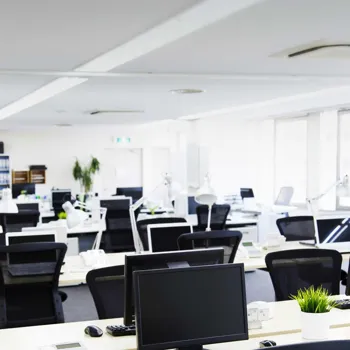Unveiling Productivity Myths: Insights Every Professional Needs. Dive in to boost your efficiency and success!
In today's fast-paced work environment, everyone is chasing the elusive goal of peak productivity.
We are bombarded with tips, tricks, and techniques promising to unlock our hidden potential and transform us into super-achievers.
However, much of the advice floating around is based on myths and misconceptions that can actually hinder our progress. It's time to set the record straight and debunk some common productivity myths, replacing them with actionable truths that can truly make a difference in your professional life.
Reality
Multitasking, often touted as a skill, is actually a productivity killer. Our brains are not wired to handle multiple tasks simultaneously. Instead, we rapidly switch our attention between tasks, a process known as context switching.
This constant switching depletes our mental resources, leading to reduced focus, increased errors, and ultimately, decreased efficiency. Studies have shown that multitasking can decrease productivity by as much as 40%.
Instead of trying to juggle multiple tasks at once, prioritize and focus on one task at a time. Complete it before moving on to the next.
This single-tasking approach allows you to dedicate your full attention and energy to the task at hand, leading to higher quality work and faster completion times.
Multitasking in India: prioritize, focus, boost productivity
In India, where many professionals are expected to wear multiple hats, the idea of multitasking seems almost ingrained in the work culture. However, it's crucial to understand the detrimental effects it can have on your overall output and well-being.
The solution lies in strategic prioritization and focused execution. Identify your most important tasks, block out dedicated time for them, and eliminate distractions during those periods. By embracing single-tasking, you can reclaim your focus and boost your productivity significantly.
Remember quality over quantity, less is more.
Reality
The belief that longer hours automatically translate to increased productivity is a dangerous fallacy. While putting in extra time occasionally might be necessary, consistently working long hours can lead to burnout, fatigue, and diminished cognitive function.
When you're exhausted, you're more prone to making mistakes, and your decision-making abilities suffer. This can negate any perceived productivity gains from working longer hours. Sustainable productivity is about optimizing your work habits and energy levels, not simply clocking in more time.
Prioritize tasks, take breaks, manage time wisely for productivity
Focus on working smarter, not harder. This means prioritizing tasks, eliminating distractions, and using effective time management techniques. Take regular breaks to recharge your mind and body. Studies have shown that short breaks throughout the day can actually improve focus and concentration.
Also, ensure you're getting enough sleep, as sleep deprivation can severely impair cognitive performance. Remember, taking care of your well-being is essential for long-term productivity. Schedule your work and rest accordingly.
Reality
Being constantly busy doesn't necessarily mean you're being productive. Often, busyness is just a mask for poor planning and inefficient work habits.
Many people equate being busy with being important, but true productivity is about achieving meaningful results, not just filling your day with activities.
Rushing from one meeting to another, answering emails constantly, and tackling a never-ending to-do list might make you feel busy, but it doesn't necessarily mean you're making progress on your most important goals.
Prioritize high-impact tasks, delegate, streamline workflow for productivity
Instead of focusing on being busy, prioritize your tasks and focus on high-impact activities that will move you closer to your objectives. Learn to say no to commitments that don't align with your priorities. Delegate tasks when possible.

Use tools and techniques to streamline your workflow and automate repetitive tasks. Remember, productivity is about working on the right things, not just working on everything. Being busy is not the same as being effective.
Reality
While a comfortable and organized workspace can certainly contribute to productivity, the idea that you need a perfect environment to be effective is a myth. Waiting for the "perfect" conditions can lead to procrastination and prevent you from getting started.
Many people fall into the trap of endlessly organizing their desks, creating elaborate filing systems, or searching for the ideal software, only to delay actual work.
Create a functional workspace without distractions for optimal productivity
The key is to create a workspace that is functional and minimizes distractions, but don't let the pursuit of perfection become a barrier to productivity. Focus on creating a workspace that suits your individual needs and preferences, but don't get bogged down in the details.

Sometimes, a simple, uncluttered space is all you need to get the job done. The workspace adapts to you not the other way round.
Reality
Technology can be a powerful tool for boosting productivity, but it's not a magic bullet. Simply adopting the latest software or gadgets won't automatically make you more productive. In fact, if used improperly, technology can actually become a distraction and hinder your progress.
Many people fall into the trap of constantly checking social media, responding to emails, or getting lost in online rabbit holes, all while supposedly "working."
Use technology strategically to enhance work efficiency and avoid distractions
Technology should be used strategically to support your work, not to consume your time and attention. Identify the tools that can truly help you streamline your workflow and automate repetitive tasks. Learn how to use these tools effectively and set boundaries to avoid distractions.
Don't let technology control you; control technology. Pick your tools properly.
Reality
This is a dangerous myth with potentially harmful consequences. Rest, including sleep, breaks, and time off, is essential for maintaining optimal cognitive function, energy levels, and overall well-being.
Viewing rest as a sign of weakness can lead to burnout, reduced productivity, and even health problems. Your body and mind need time to recover and recharge.
Regular breaks and rest vital for productivity and focus
Regular breaks throughout the day can help you stay focused and energized. Getting enough sleep is crucial for memory consolidation, learning, and decision-making. Taking time off allows you to de-stress, recharge, and return to work with renewed enthusiasm and creativity.
Prioritize rest as a vital component of your productivity strategy, not as a luxury. Rest makes you at your best.
Reality
The pressure to know everything can be overwhelming and paralyzing. In today's rapidly changing world, it's impossible to keep up with all the latest information and developments. Trying to do so can lead to information overload and prevent you from taking action.
Instead of trying to be an expert in everything, focus on developing a growth mindset and a willingness to learn.
Focus on relevant knowledge, ask for help when needed
Embrace the idea that you don't need to know everything to be productive. Focus on acquiring the knowledge and skills that are most relevant to your goals. Don't be afraid to ask for help or delegate tasks to others who have expertise in specific areas.
Continuous learning is important, but it shouldn't come at the expense of taking action. Always ask for help when needed.
Reality
While time management is an important aspect of productivity, it's not the only factor. Simply managing your time effectively won't guarantee success if you're not working on the right things or if you're lacking in other essential skills.
Productivity is a holistic concept that encompasses a variety of factors, including prioritization, focus, energy management, and effective communication.
Identify tasks, eliminate distractions, manage energy, communicate effectively for sustainable productivity
Focus on identifying your most important tasks and prioritizing them accordingly. Eliminate distractions and create a focused work environment. Manage your energy levels by taking regular breaks and getting enough sleep. Communicate effectively with your colleagues and clients.
By addressing all of these factors, you can create a sustainable productivity system that goes beyond simple time management. Time is valuable. Use it well.
Reality
Waiting for motivation to strike before you start working is a recipe for procrastination. Motivation is often fleeting and unreliable. Instead of relying on motivation, develop discipline and create habits that support your productivity. When you wait for motivation you waste your time.

Consistent routine beats motivation for productivity
Establish a consistent work routine and stick to it, even when you don't feel like it. Break down large tasks into smaller, more manageable steps. Reward yourself for completing tasks, even small ones. By focusing on action rather than motivation, you can overcome procrastination and build momentum.

Motivation is great, but habit does more.
Reality
There's no one-size-fits-all approach to productivity. What works for one person may not work for another. Everyone has different work styles, preferences, and personalities. The key is to experiment with different techniques and strategies and find what works best for you.
Customize productivity strategies to fit your unique needs
Don't blindly follow productivity advice without considering your own unique circumstances. Be willing to adapt and customize strategies to fit your needs. Pay attention to what makes you feel most focused, energized, and productive.
Develop a productivity system that is tailored to your individual strengths and weaknesses. Individuality is key.
AI Generated Content. Glance/InMobi shall have no liability for the content




















